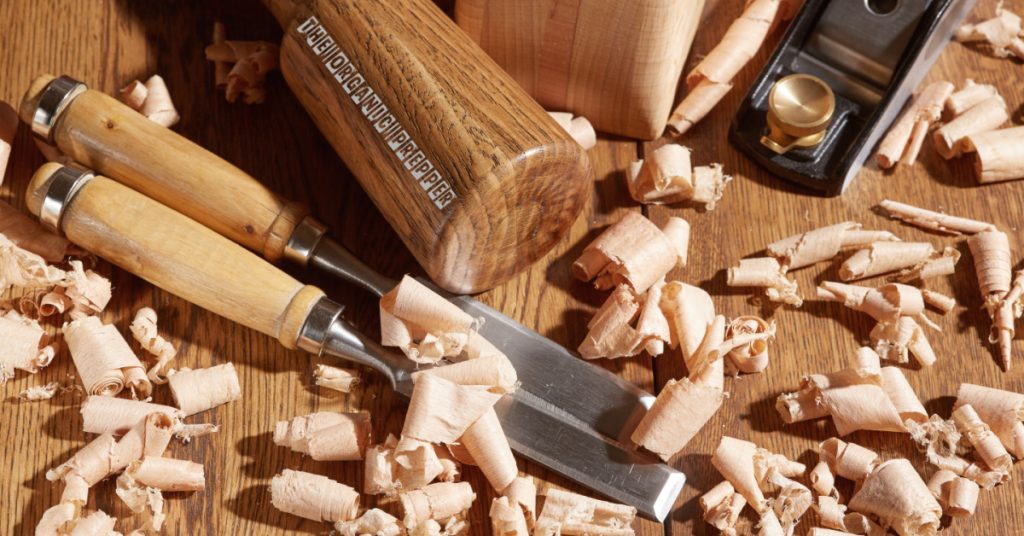by Aden Tate, The Organic Prepper:

This has been a multi-year process of gradually deciding, “You know, I’m not supporting that company with my money anymore,” and it’s rapidly gotten to the point where my blacklist has a lot in common with the length of a CVS receipt.
We’re witnessing the culmination of “the long march through the institutions,” and there are a lot of Americans out there who are in the same boat as I am here with all this.
TRUTH LIVES on at https://sgtreport.tv/
And if you find yourself looking for some sense of direction with the tangibles of daily life, feeling the need to pull a John Galt and opt-out from much of pop culture society in modern America, I think you’ll find the 1800s Swedish concept of slojd (pronounced “sloyd”) interesting.
In 1865, a Swede with a name reminiscent of a card game, Otto Solomon, created a teaching system for young Swedes with the intention of getting more of them skilled in a trade and independent when they finally graduated from high school. He called the concept slojd. Basically, the idea was that you would teach kids manual skills such as woodworking, metalworking, knitting, and the like, so that they would have some marketable skill they could earn a living from, they wouldn’t have to purchase everything they needed, and they would be able to fend for themselves better.
The kids would start with simple projects (e.g., make a butter knife) and then move up to more and more difficult assignments as their skills progressed.
In many ways, I think this is a concept worth exploring.
A kid who has been educated in this manner has less of an incentive to go to a four-year indoctrination camp after he gets his high school diploma. Why go thousands of dollars in debt for a degree to get a job when I can get a good-paying job today without the debt using the manual skills I already possess?
You also end up with the next generation not needing major companies for their daily needs (at least not as extensively), diminishing the power of those uber-corporations in the future.
But slojd isn’t just about education. It’s also a system of woodworking, and, admittedly, something of a toe-deep “philosophy” as well. Let’s get the philosophy stuff out of the way first. Basically, it’s simply that you make what you need with what you have. (That’s why it’s toe-deep. It doesn’t answer the big questions about life, but instead, is a philosophy in the same sense as why some basketball coaches like to run full-court presses all the time.)
Need furniture? Make it with the tools and materials you already have. Need blankets? You make quilts with old T-shirts. Need fencing? What do you have that will accomplish the job out in your barn? (In a way, this is the same argument I made in The Case for More American 3D Printers.)
In this sense, I think that there’s a lot of appeal to an American. We have always had a reputation for creativity with what we have around us. We landed in a New World, built homes out of the wilderness, and continually figured out how to survive on the frontier. And with what? With what was already there.
You could start with woodworking.
And this is where I think that the woodworking, knowledge, and tool side of the equation comes into play. If you want to be able to make a lot of what you need around you just from what you’re able to find out in the woods, there are some things that make the task easier.
You can make a lot of things out of wood, and given that it’s fairly easy to access within the United States, it’s worth pointing out that with a good chain saw, an axe, a hatchet, and a froe, you can make your own boards for woodworking fairly efficiently. With a lot of effort? Yeah, it takes sweat.
But it’s possible and there’s an entire culture within the woodworking culture that does it. Think Fine Woodworking. Those are the people that do this.
The next piece of gear is a slojd knife.
There are three major players within the realm of slojd knives: Flexcut, Beaver Craft, and Mora. All make great knives. Mora is from Sweden, Beaver Craft is from Ukraine, and Flexcut is from Pennsylvania. An actual slojd knife is recommended for these types of carving projects too. Sure, you could use your pocket knife, but your hand isn’t going to be very happy with you the next few days after you do so.
Read More @ TheOrganicPrepper.ca



